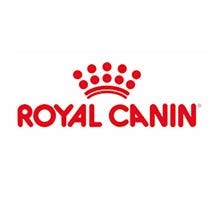The Difference Between Size Specific and Breed Specific Dog Foods
Dogs come in all kinds of different shapes and sizes, so it should be no surprise that they all have specific nutritional requirements, making a ‘One Size Fits All’ food something of a fantasy.
However, there is a range of dog foods suitable for specific breed sizes and even specific breeds. For example, if you are the proud owner of a Labrador retriever, you could choose to feed them specific Labrador food or go for a large dog food.
We’ve put this guide together to help you get to grips with the different needs of specific dog breeds and sizes, and what food is suitable for them.
Contents
What are Small, Medium and Large Breed Dog Foods
Before we go into the specifics of breeds, we are first going to take a look at dog food by size. This will include what constitutes a small, medium, or large dog and the potential nutritional needs of each.
We’re also going to look at what food is suitable for these sized dogs depending on their life stage, and all dogs need different nutrition depending on their age.
Small Breed Dog Food
Small dog breeds, such as Pomeranians and Jack Russell Terriers, have a much faster metabolism than some larger breeds. As such, they need a diet with a higher calorie intake to accommodate the speed they burn it off.
Small dog breed food works by packing the calories in without increasing the serving size, so you can ensure your dog is getting all the calories and nutrients they need without overfeeding them.
Smaller dogs also have smaller mouths, which makes it harder for them to chew larger morsels. This is why small dog breed kibble is made much smaller, and wet food for small dogs is ground much finer.
If you are looking for a good dry food for small dogs, why not try Purina Pro Plan Optibalance Small & Mini Dog Dry Food?
Medium Breed Dog Food
Medium dog breeds—which include anything from English Bull Dogs to Border Collies—make for an excellent middle ground as they don’t require any more or less nutrients like small or large breeds do. In fact, their food has just the right amount of nutrients and calories. The only variation for medium breeds should be for their age and if they have any existing health issues.
If this is the case with your dog, why not browse our range of vet-recommended condition-specific dog food?
Large Breed Dog Food
Unlike smaller and medium-sized breeds, large dog breeds like the English Mastiff or Labrador Retriever have much more growing to do. This is why their diet needs to include optimum levels of calcium so they can develop strong and healthy bones as well as a good balance of protein, vitamins, and minerals.
Many big dog breeds are more prone to developing joint issues, so their food needs to contain glucosamine to help maintain healthy joints and prebiotics to boost digestion or include a dog joint supplement as part of their daily diet.
If you’re looking for a new, complete dog food for large breeds, why not try the Purina Pro Plan OptiBalance Large Robust Dog Food?
Size-Specific Puppy Food
As we mentioned previously, different dog breeds will have different nutritional requirements for them as they grow.
Small Breed Puppy Food
Small dog breed puppies, for example, need even more calories in their food because not only do they burn them much faster, but they also need the added nutrients to support their growing bodies. Plus, small-breed puppy food, like the Burns Dog Puppy Mini dry food, is packed with extra amino acids to help them grow up strong, if not big.
Large Breed Puppy Food
As with large-breed adult food, large-breed puppy food is formulated with optimum calcium levels for controlled bone growth in large breeds. Large-breed puppy foods, like PURINA PRO PLAN Optistart Large Athletic Puppy Dry Food, also tends to be lower in fat, calories, and phosphorus to help them through their unique development.
Size Specific Senior Dog Food
Much like when they’re puppies, different-sized breeds also have different nutritional requirements after they’ve reached maturity. For small dog breeds, this is seen to be around the seven-year mark, whereas larger breeds are considered senior at five.
Small Breed Senior Dog Food
The average lifespan for smaller dog breeds is between 10-15 years, though some breeds, like the Chihuahua, have been known to live as long as 20 years. To help them as they grow old, small dog breed senior food contains high levels of antioxidants to help promote cell damage, and the food also tends to be much softer in texture, making it easier for them to chew and digest.
Large Breed Senior Dog Food
Unlike their smaller counterparts, large breed dogs have shorter lifespans—averaging between 8-12 years—and also tend to have more issues as they age. This is why it's essential that attention is paid to their diets.
Large-breed senior dogs need fewer calories than when they’re adults to help prevent obesity, as they tend to move less. They also require more protein in order to maintain muscle mass and support their ability to respond to stress. Their food also contains more fibre and Omega-3 for joint and arthritis issues since larger dogs are more prone to having these issues.
A good choice for a large breed senior food is Hill's Science Plan Mature Adult Wet Dog Food, as it’s full of balanced minerals for heart & kidney health and has a smooth, soft texture, so it’s easier for them to chew.
As you can see, there is more to consider when choosing healthy dog food than whether or not wet or dry is better. You always need to take the age and size of your dog into account when choosing food.
You also shouldn’t have the wrong size dog food as a staple in your dog’s diet, but ensure you’re choosing the right food for your dog’s unique body and needs. And, of course, there’s also your dog’s specific breed to take into account.
What is Breed-Specific Dog Food?
As well as different-sized dogs having different nutritional requirements, so too do some breeds need specific diets. This is why you can also find a range of breed-specific food tailored to your dog’s breed type and any specific nutritional needs that specific breed needs, including any specific medical issues that one breed may be more prone to or more.
Here, we’ll delve into the pros and cons of breed-specific foods and whether they are necessary for your dog.

How Important is my Dog’s Breed?
One of the most diverse species on the planet is canines. Not only can they be found in almost every country, but man’s best friend is also thought to have anywhere between 195 - 500 different breeds, plus all the crossbreeds that have come into being either experimentally or by complete accident (we’re looking at you, Pomskies).
Every breed of dog is unique, and the breed of your dog not only determines their appearance but can also influence their temperament, build, activity level, and dietary needs.
What are the Benefits of Breed Specific Dog Food?
Breed-specific dog food is the perfect way to ensure that your dog’s diet meets all the necessary criteria for the needs of their specific breed.
For example, some breeds of dogs, such as the Labrador Retriever and German Shepherds, are more prone to joint issues, specifically with their spine, hips and elbows. Other dogs, such as Beagles and Springer Spaniels, are more to become obese, and breeds like Golden Retrievers and Boxers tend to have more sensitive stomachs.
There’s no better way to keep your dog happy and healthy, with all of their special requirements being met, than by choosing a breed-specific dog food like the Eukanuba Breed Specific German Shepherd Dog Food.
Are Breed Specific Dog Foods More Expensive?
Almost all breed-specific dog foods are made by some of the best quality dog food manufacturers in the pet industry, so compared to lesser quality dog foods, they can be more expensive.
However, compared to other high-quality, natural dog foods, the price of breed-specific foods is comparable.
Did you know you can save money on your dog’s dinner when you buy dog food at Pet Drugs Online?
What Types of Breed Specific Dog Foods are There?
Many big-name dog food brands took the time to research specific breeds and now cater to various dog breeds and their nutritional requirements. Some of the best examples of these are:
- Royal Canin offers specifically formulated dog food for breeds such as Cocker Spaniels, Boxers, and more.
- Eukanuba Breed Specific dog foods include foods for breeds such as Labrador Retrievers and West Highland Terriers.
What if they don’t make breed-specific dog food for my dog’s breed?
As mentioned above, there are hundreds of different dog breeds in the world, so breed-specific formulas won't be available for every breed. Instead, dog food manufacturers have focused on making breed-specific dog foods for the most popular breeds.
Plus, there are more and more mixed-breed dogs now, with reports claiming that the number of homes with a mixed-breed dog (commonly referred to as a ‘mutt’) grew 65% between 2015-2019. That said, mixed-breed dogs can still benefit from the nutrition of a breed-specific food from either breed.
If your specific breed of food isn’t on the market, then size-specific dog food is a good alternative to help your dog get all the nutrients they need.
Other Specific Dog Foods: Condition Specific / Grain Free
As well as breed and size-specific foods, there are also specific dog foods tailored to your dog’s specific needs and diet. These can include hypoallergenic grain-free dog food like the Purina Pro Plan Hypoallergenic Dog Food and diet specific to lifestyle like the Skinner's Field & Trial Working 23 Dog Food for working dogs.
Condition-Specific Dog Food
These types of dog food are widely available, and some may even be prescribed by your vet to help improve your dog’s overall health. Different types of condition-specific foods target a range of conditions, including, but not limited to:
- Digestion problems
- Kidney and liver health
- Diabetes
- Heart health
- Joint support
- Weight management
Free From and Grain Free dog food specialises in skin and allergy conditions and any intolerances your dog may have. These special diets are hypoallergenic dog foods, such as the James Wellbeloved Adult Dog Lamb & Vegetable Grain Free food, which are made to be easy to digest and suit your pet’s intolerances, which may be causing an allergy.
Which is better for your dog?
As we’ve explained, there are benefits for both size and breed-specific foods as well as age-specific foods. Size will take into account the size of your dog and make their kibbles accordingly, whereas age-specific food will focus on ensuring your dog is getting all the nutrients to help them as they age. Breed-specific food then takes each of these things even further and tailors the food to meet the nutritional requirements of your dog’s specific breed.
The truth is, there isn’t one answer that fits all. Every dog is different, and some are more popular than others. This is why we think it’s usually best to stick with size-specific dog food as it tends to be more affordable and will more likely accommodate your dog's full dietary needs.
Dogs come in all shapes and sizes, but now that you understand the key difference between size and breed-specific dog food, you can better understand what will best suit your dog. So long as you remember to tailor your dog’s diet to their specific age group, then you’ll be able to find the healthiest dog food option for your dog. Plus, with such a wide range of flavours available across the market, your dog will be spoilt for choice, regardless. If you would like more advice on how to choose the best food for your dog, check out our guide below.
This post is an opinion and should only be used as a guide. You should discuss any change to your pet’s care or lifestyle thoroughly with your vet before starting any program or treatment.
















































